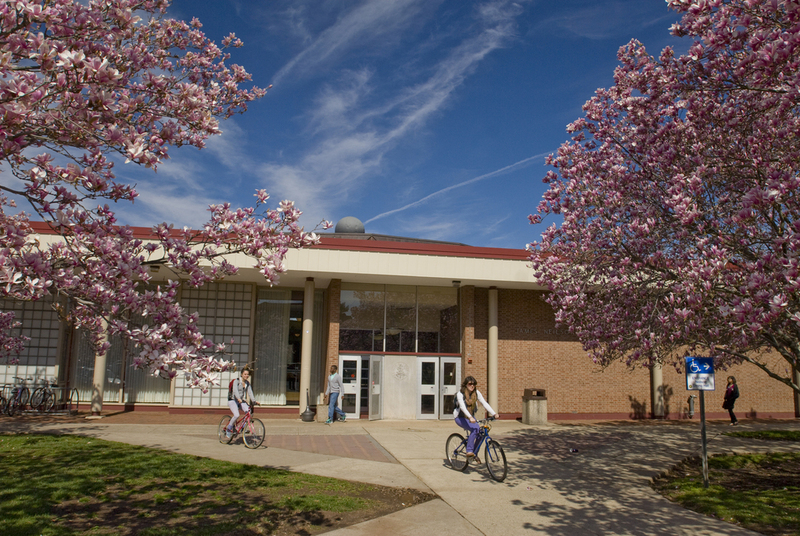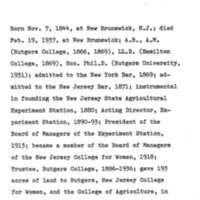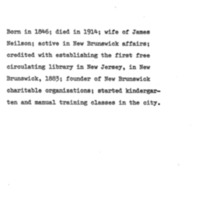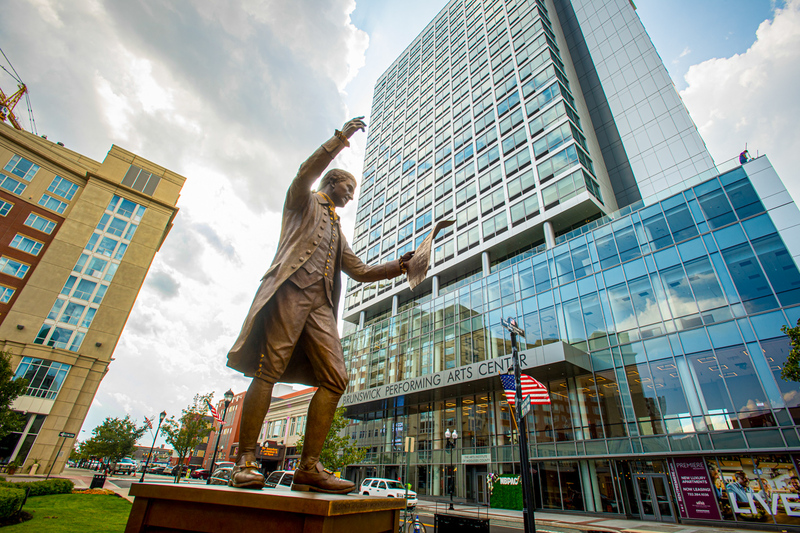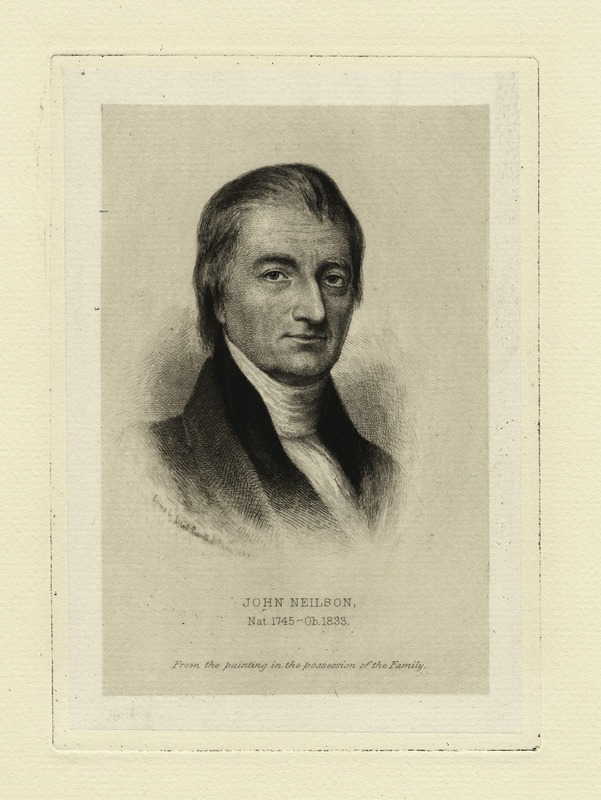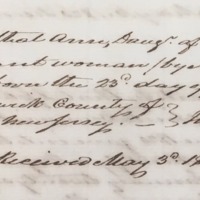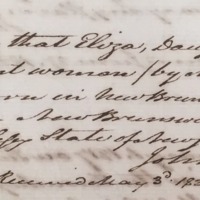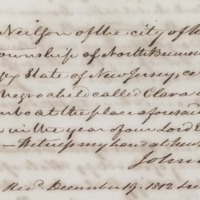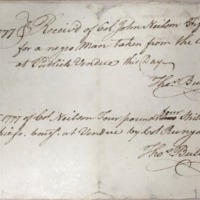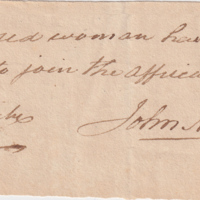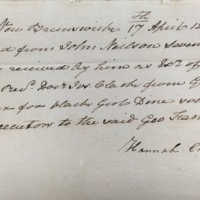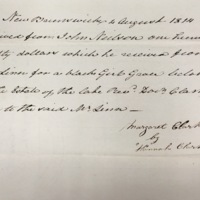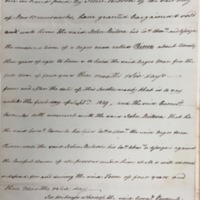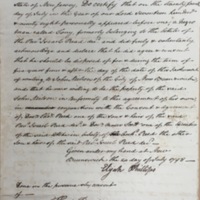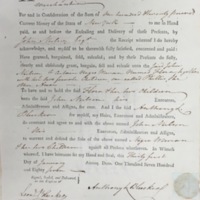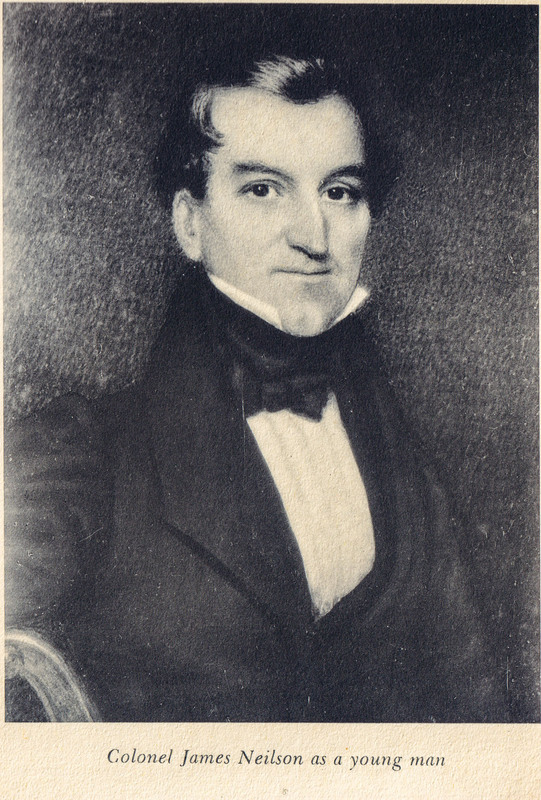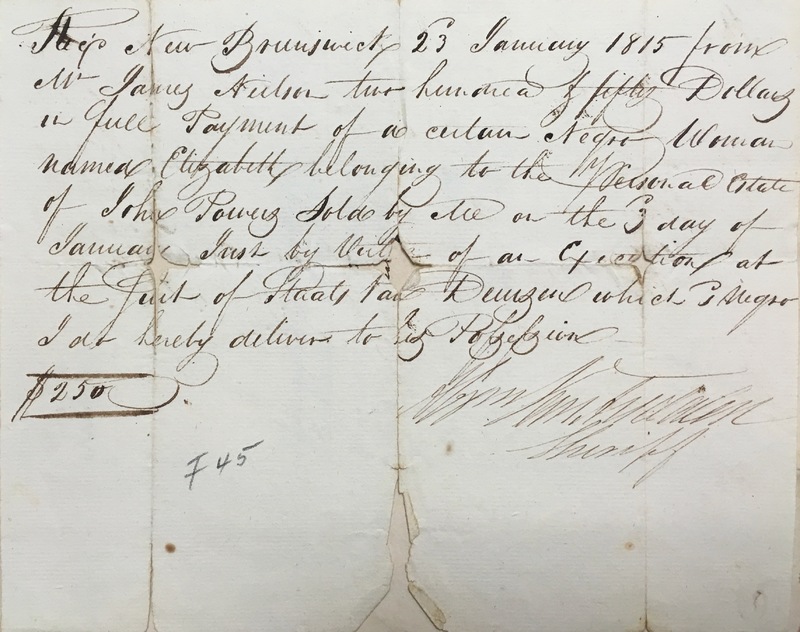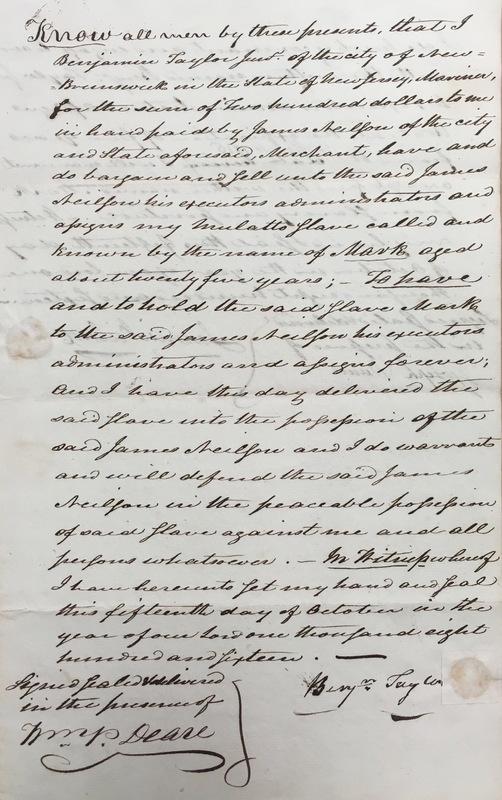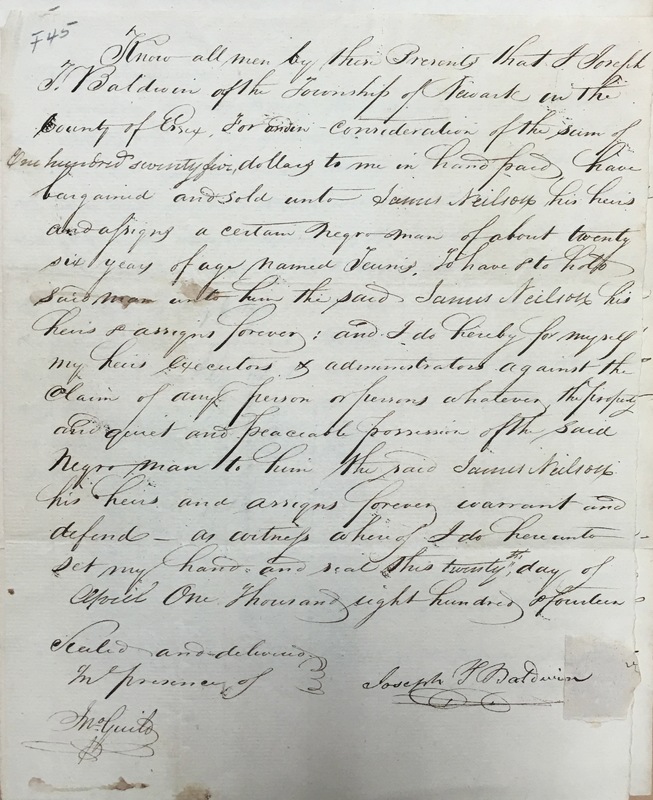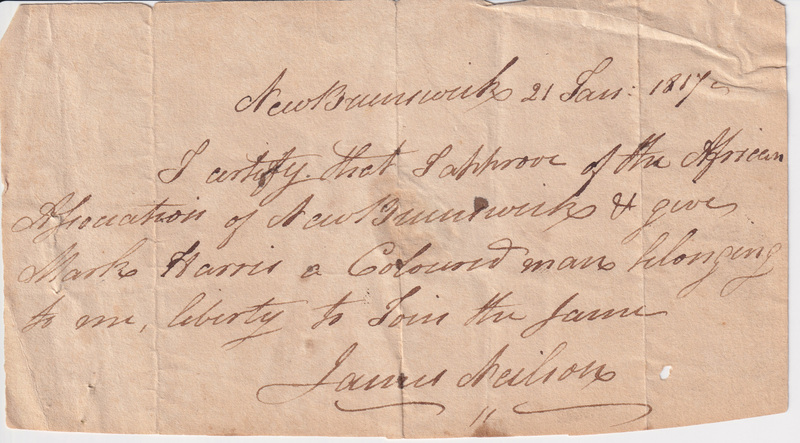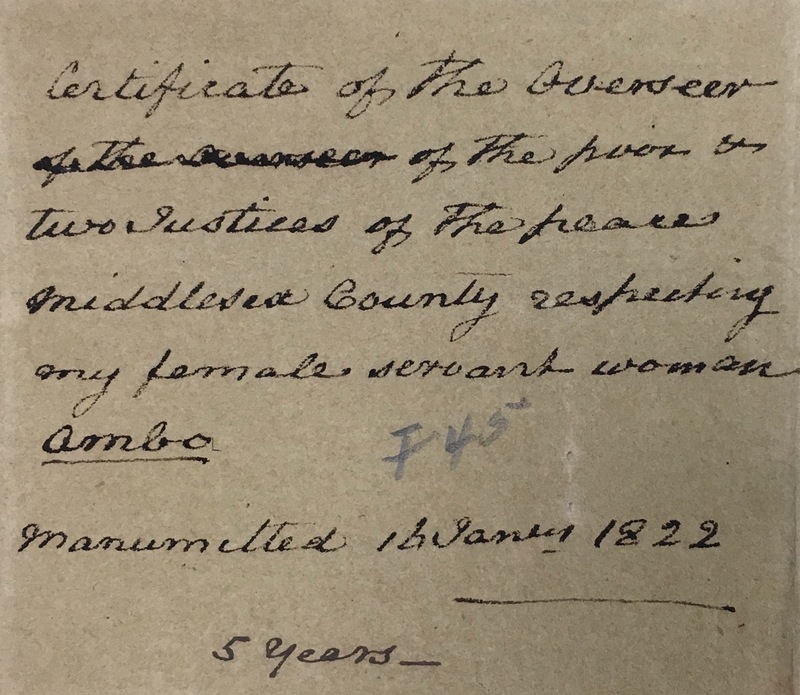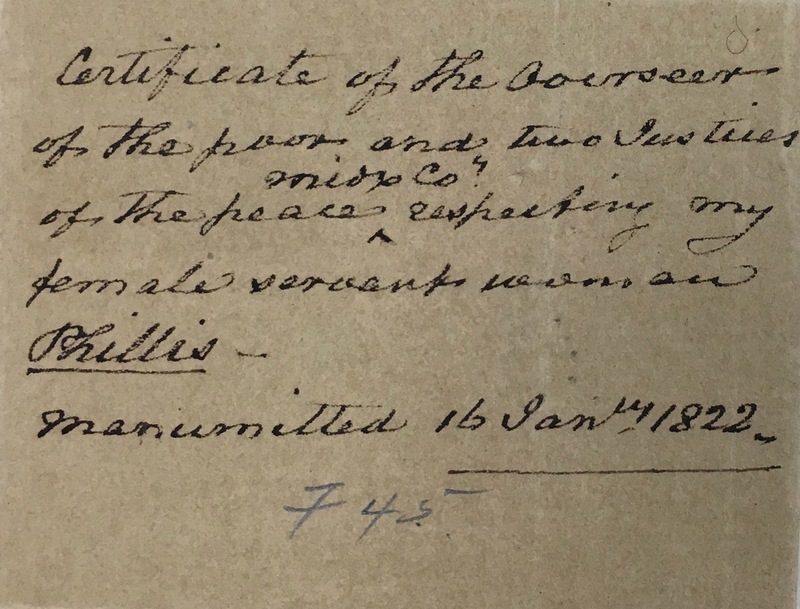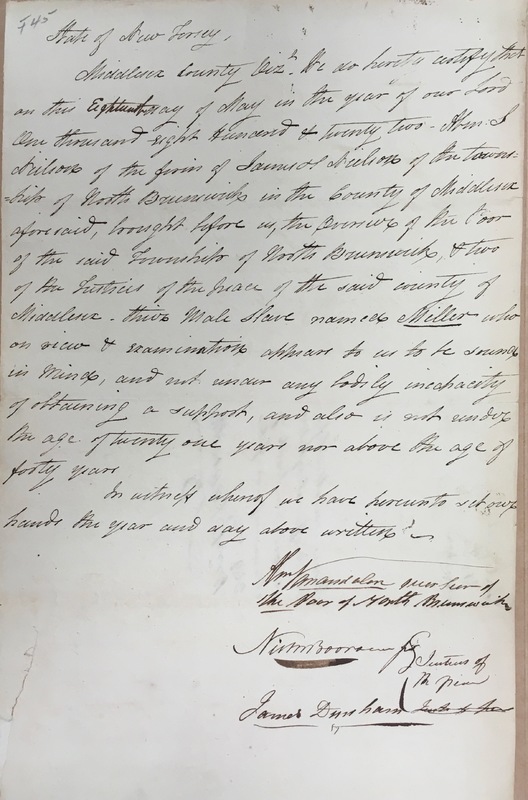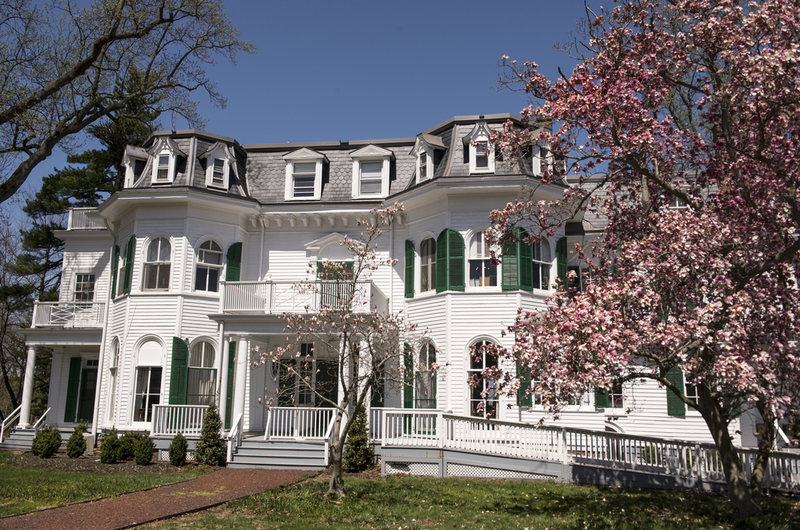Neilson
Located at 177 Ryders Lane in New Brunswick, students at Rutgers University visit Neilson Dining Hall daily. Neilson Street is also situated between College Avenue and Douglass campuses in New Brunswick. Thus, “Neilson” has become an accepted and well-known namesake within the Rutgers community. But where does this namesake stem from?
Neilson Dining Hall was erected in 1961, and was named after James Neilson (1844-1937). James Neilson was a graduate of Rutgers, and is considered one of the greatest benefactors of the University. James Neilson donated significant portions of land to the University, including what is today Voorhees Mall, and the Eagleton Insitute of Politics.
While James Neilson (1844-1937) certainly contributed greatly to the University, his ability to do so was made possible through generations of wealth and privilege passed along within the Neilson family.
Rutgers University Catalogue of Building and Place Names explanation of James Neilson and his wife Mary Putnam Woodbury's (1846-1914) contributions to the University, in order to be namesakes of buildings. Woodbury Hall is now known as Woodbury Bunting-Cobb Residence Hall.
Colonel John Neilson was a prominent figure within the Revolutionary War and Continental Congress. He was also the third person to officially read aloud the Declaration of Independence. This reading has been commemorated by the New Brunswick Public Sculpture Committee.
While Colonel John Neilson made significant contributions to the area and Rutgers as an early trustee, him and his family engaged in the slave trade through their profits within the shipping and mercantile industries, and from their own slaves' labor.
Colonel John Neilson bought and sold slaves during and after the Revolutionary War. He also inherited his Uncle James Neilson’s estate and slaves (Sampson and Jack) that were left in his will.
While many of the Neilson family's slaves might not have been documented, the following were and their names should be remembered: Flora, Phillis, Clara, Eliza, Ann, Tony, Prince, and Elizabeth.
Colonel James Neilson (1784-1862), son of Colonel John Neilson, served as a commander in the War of 1812. He was also a trustee of Rutgers College, and was known as a prominent businessman in New Jersey.
The Neilsons only started to manumit their slaves in the 1820's, when they were bound to do so by law.
James Neilson Jr. (1844-1937), Rutgers Class of 1866 and son of Colonel James Neilson, became a trustee in 1886. He was known as a "farming pioneer" and was very active in the New Brunswick community with his wife, Mary Putnam Woodbury. James Neilson Jr. was also a signficiant supporter of the New Jersey College for Women.
Learn more here about James Neilson Jr.'s legacy and contributions to Rutgers University and New Brunswick: http://rci.rutgers.edu/~rualumni/awards/hda.php?show=114

